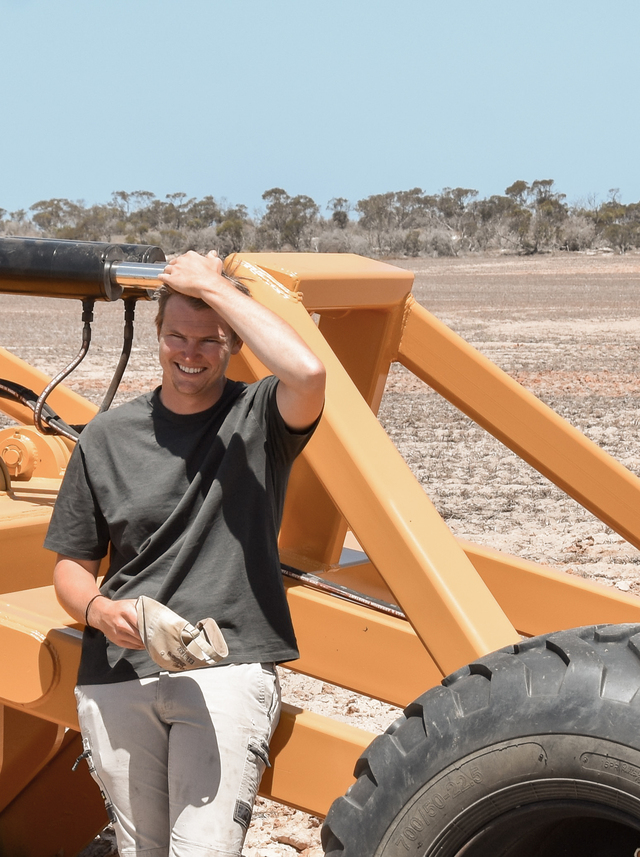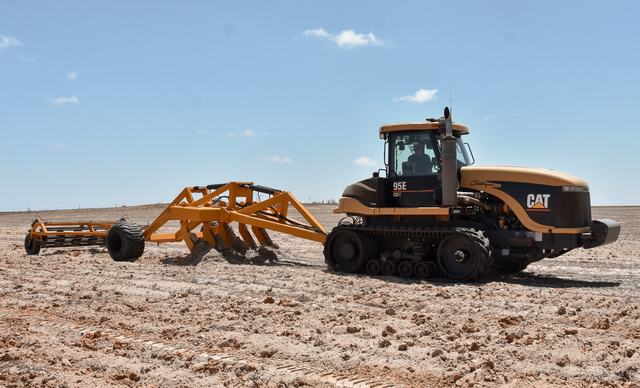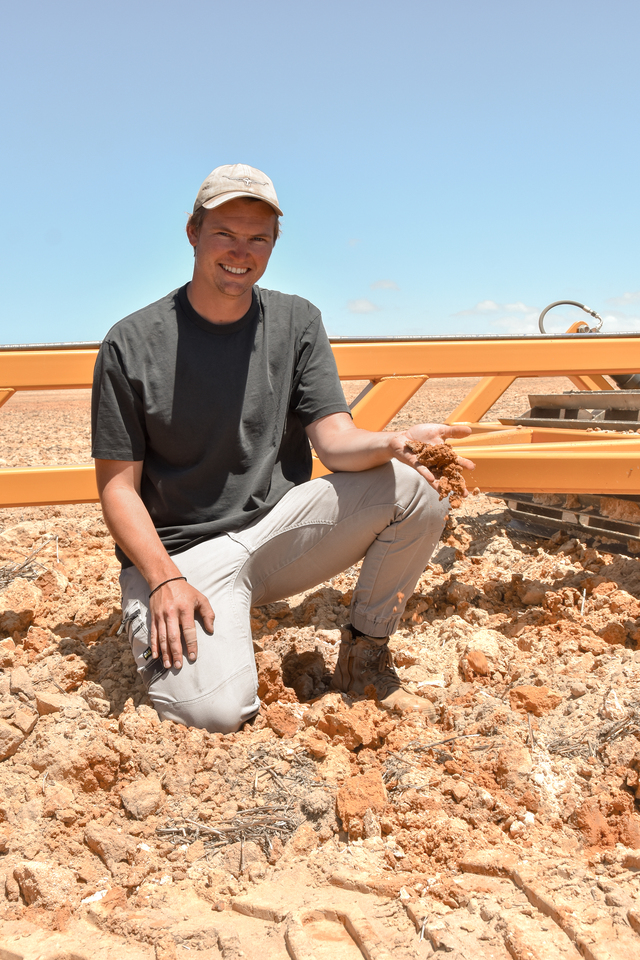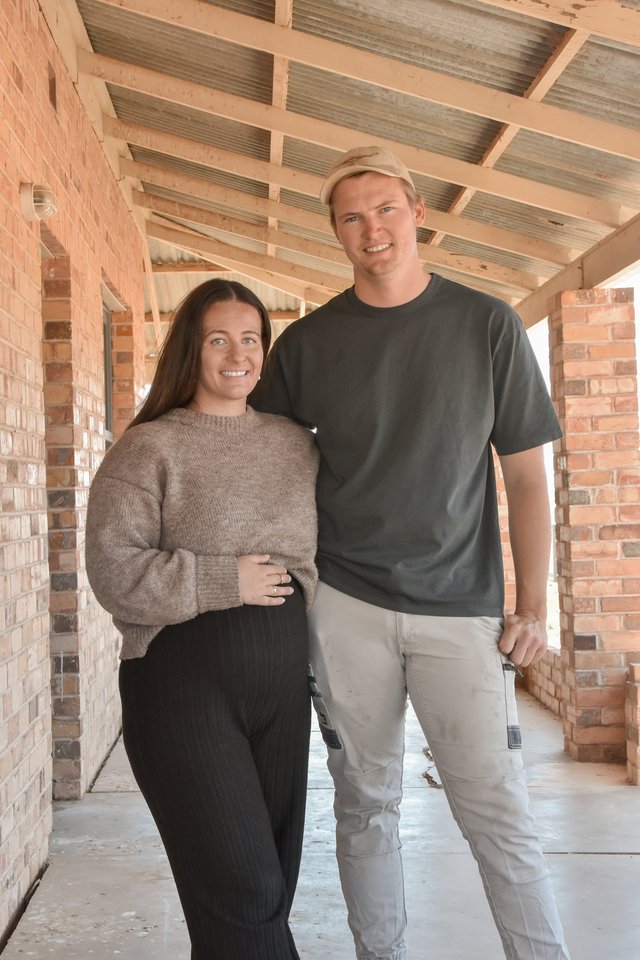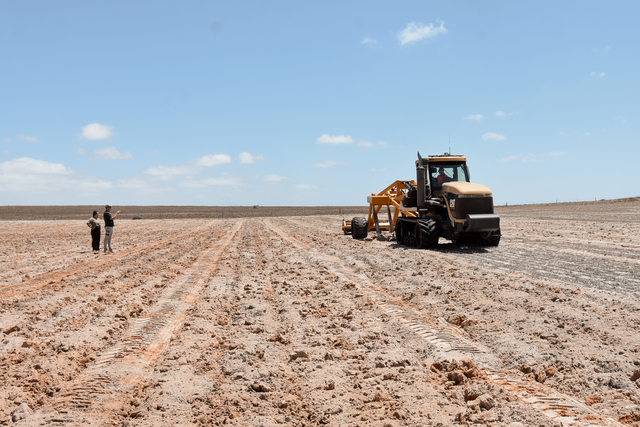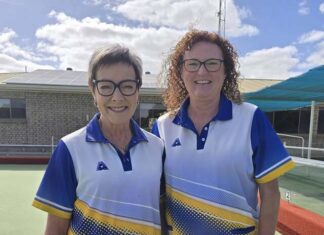Joel Horne loves what he does on the farm and is most proud of the delver he designed and created.
Down a white sandy track out Wharminda way, fourth-generation farmer Joel Horne has gotten behind the wheel in the family business, while his parents happily settle into retirement.
He is expecting his first child with partner Juliette, and both are looking forward to the possibilities for this next generation, who will get to have the life kids on farms have, full of adventure, space to roam and if they’re anything like their dad – freedom to follow inspiration when it hits.
Farming wheat and lentils on a five-and-a-half thousand acre block, Joel grew up surrounded by all sorts of machines and vehicles necessary to keep the crops reaping.
He recalled a childhood of liberty, and enjoyed the responsibilities that came with farm life from a young age.
“Things like operating machinery and doing all the things you’re probably not supposed to do, but that everyone does as farm kids,” he laughed.
While still at school, Joel started a metal fabrication apprenticeship, soaking up everything he could about the trade for two years before heading back to the farm.
At just 19, in September 2018, he started building a delver.
Delvers are dragged behind a tractor through the crop area, the big metal tines dig about a metre into the ground and bring up the nutrient-rich clay from beneath to the surface.
This delver, Joel’s Delver, took three years to make, and is a massive yellow multi-tined machine.
“The main thing that motivated me to build one was a dry year for us back in 2017,” he said.
“I was reaping crops which mum and dad had contracted to be delved nearly 20 years ago and you could see the line where it had been done all that time ago, it had doubled our crop. I wondered why we hadn’t done more of it with all our sandy soil.
“For starters I thought about retrofitting or modifying a machine to do it – that had been done a few times locally – and I sort of started that but then after a while decided I wanted to build something I could use for a long time, something that was going to last.”
So he designed and built his own from scratch.
As Joel describes the process, you get the feeling he took pride in his work – he doesn’t mind explaining the operation, or the science behind the soil, and is genuinely interested in the work he does on the farm.
“I always enjoyed designing things, it’s not really that similar to any other delvers, I looked at a lot of the machines out there and decided to fix all the things I didn’t like about them,” he said matter-of-factly.
“All of our sands are hydrophobic or water repellant, the moisture doesn’t soak into them, it holds back our yields majorly all over Australia, but it’s a big problem on Eyre Peninsula for sure.
“With delving you’re able to grow more in the same amount of land by a long way, up to double or some years more than double.”
Delving did not come without its challenges, leaving white sand vulnerable to wind erosion.
“Your first major challenge is getting it covered with plants to give the soil stability again so it won’t move,” he explained.
“You’re next challenge is – because you’re ripping it very deep it makes it quite hard to get on with machinery because it’s so soft, you need the right gear to get it in cropping rotation again, it takes at least a couple of years to be back to how it was previously, to drive tractors over it easily.”
Delving was done between harvest and seeding, and a crop was sown straight back in to be reaped that same year, nearly 100 hectares could be transformed in about a week with Joel’s Delver.
Juliette said she was incredibly proud of Joel.
“The delver was a project he’d been passionate about building since we were 18,” she beamed.
“His skills and dedication into the design and build of the delver, along with every project he takes on never cease to amaze me.”
Sometime in the future, Joel hopes to be able to go off farm with the delver a bit more, possibly contracting out to others in the area, delving further into farming on Eyre Peninsula.

